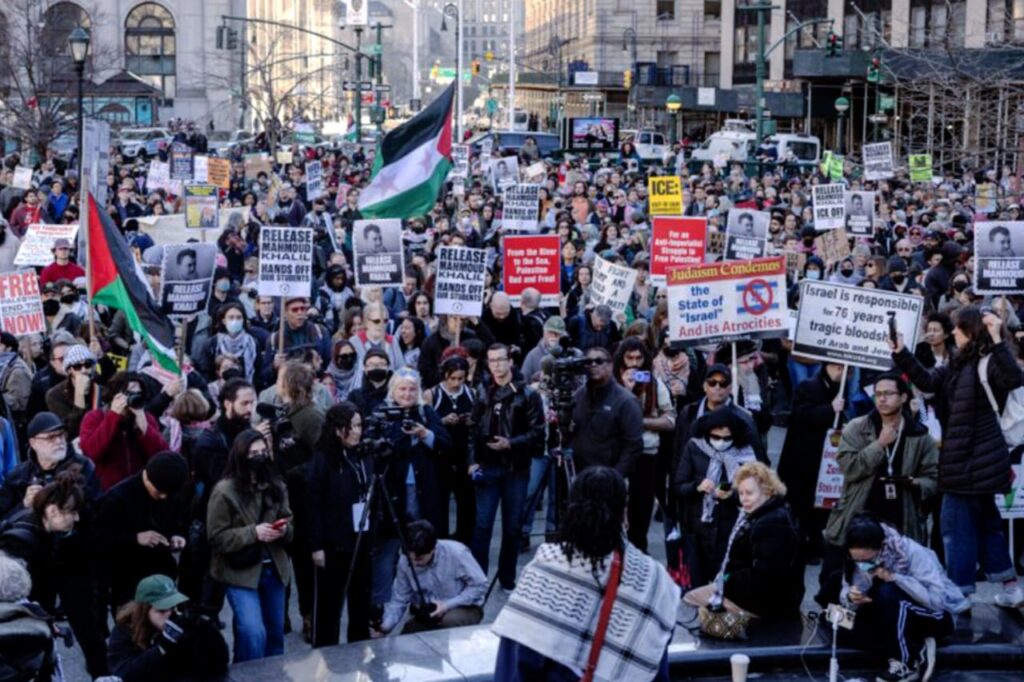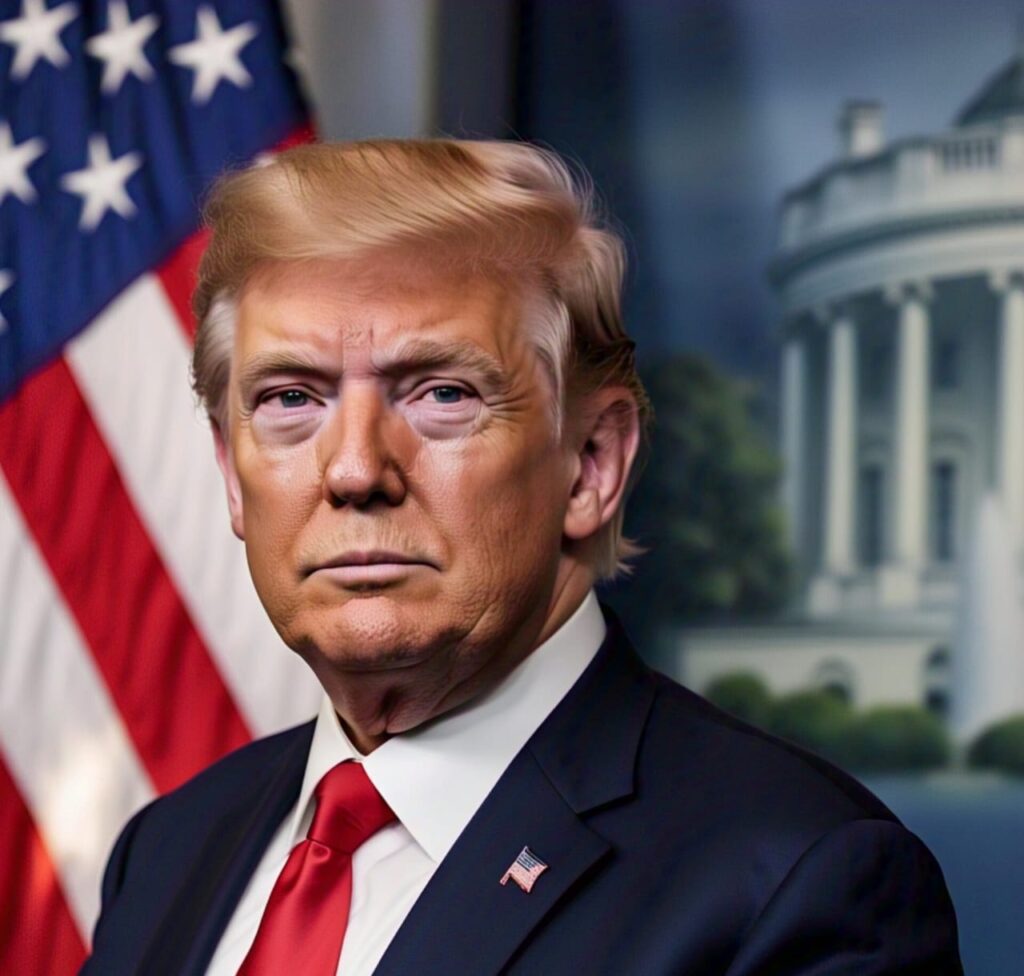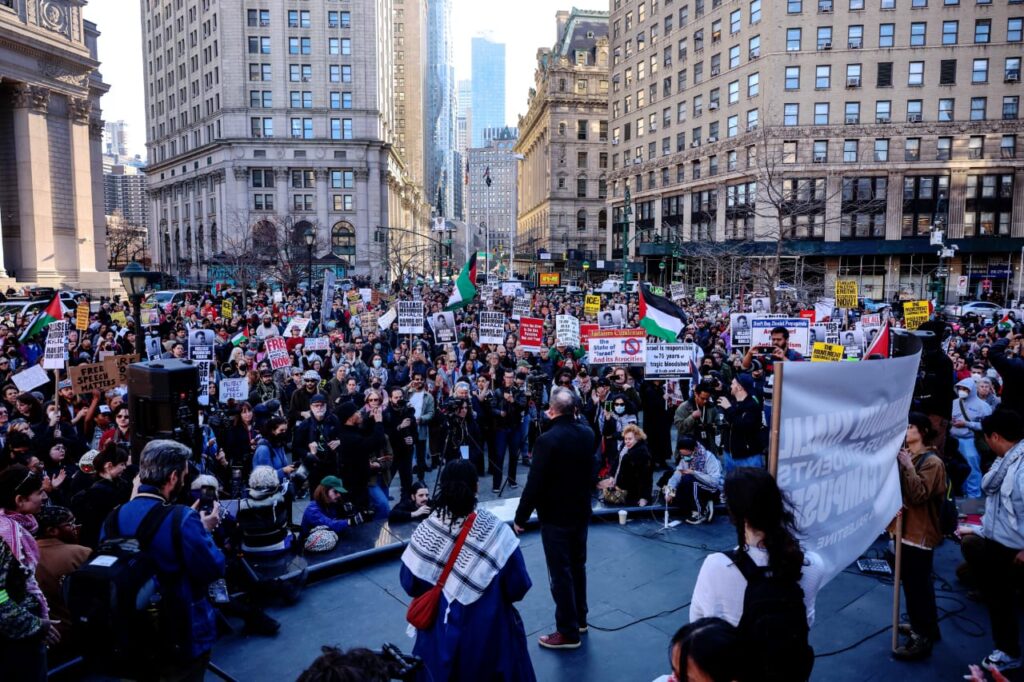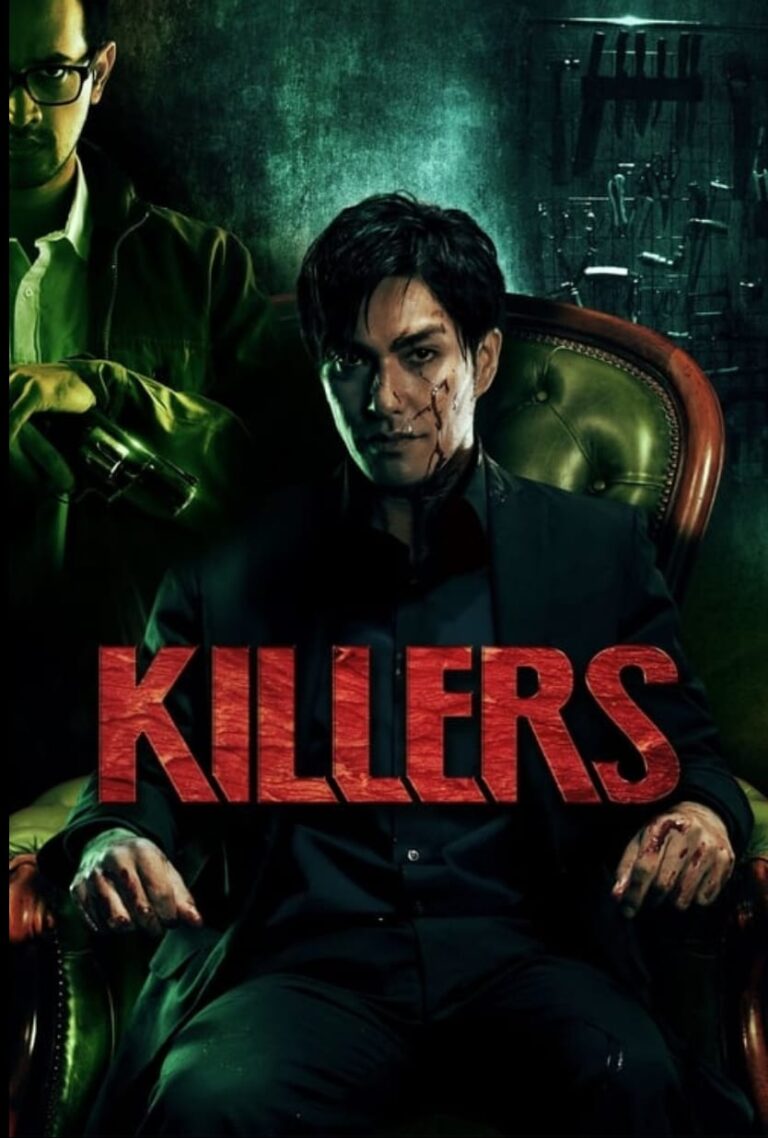
Former President Donald Trump has ignited controversy by declaring the arrest of 30-year-old Palestinian student-activist Mahmoud Khalil, a leader of Columbia University’s pro-Palestinian protests, as the “first of many” in a promised crackdown on demonstrations against Israel’s Gaza campaign. Khalil, detained last week by ICE agents and held in an immigration jail, faced imminent deportation until a federal court temporarily halted the process Monday following a legal challenge by his attorneys.
Trump’s Truth Social Post Fuels National Debate
In a lengthy Truth Social post, Trump accused pro-Palestinian protesters of being “paid agitators” and vowed to escalate actions against “anti-Semitic, pro-terrorist, and anti-American activity.”
His remarks came hours after Khalil’s arrest sparked nationwide protests, with civil rights groups condemning the move as politically motivated. “This is just the beginning. We will not allow foreign radicals to threaten our values,” Trump wrote, without providing evidence for his claims about protester funding. ### **Who Is Mahmoud Khalil?**
Khalil, a graduate student in sociology, emerged as a vocal advocate for Palestinian rights after Israel’s 2023 Gaza offensive. Columbia University protests under his leadership called for divestment from companies linked to Israel’s military.
ICE officials cited a “violation of visa terms” for his arrest, though Khalil’s attorneys argue the charges are baseless. “This is an attempt to silence dissent,” said ACLU spokesperson Rebecca Chen, noting Khalil’s pending asylum application over fears of persecution in his native West Bank. ###
Protests Escalate Amid Free Speech Concerns
The arrest has intensified debates over free speech and immigration policies. Over 5,000 demonstrators gathered outside Columbia’s campus this weekend, while Harvard and NYU students staged solidarity rallies. Critics accuse the Trump administration of conflating activism with extremism, pointing to a 40% rise in Palestinian-led protest arrests since January 2025. The White House has yet to comment, but GOP leaders applauded the move, calling it “long overdue.”
What’s Next?
A federal judge in New York will hear Khalil’s case on March 18, determining whether his deportation can proceed. Legal experts warn the outcome could set a precedent for handling dissent on college campuses. Meanwhile, Columbia University faces pressure to defend Khalil’s student status, with over 200 faculty members signing a petition condemning his arrest.

Trump Pledges Crackdown Following Arrest of Columbia Pro-Palestinian Activist
Former President Donald Trump has declared the arrest of Mahmoud Khalil, a Palestinian graduate student and leader of Columbia University’s pro-Palestinian protests, as the “first of many” in a sweeping crackdown on activism opposing Israel’s military actions in Gaza.
Khalil, 30, was detained by ICE agents last week over alleged visa violations, sparking nationwide outcry and accusations of political targeting. Trump amplified the controversy on Truth Social, branding demonstrators as “paid agitators” and vowing zero tolerance for what he called “anti-Semitic, anti-American chaos.”
The arrest came amid escalating campus protests demanding Columbia divest from companies linked to Israel’s military, with Khalil emerging as a prominent voice before his abrupt detention

Legal Battle and Protests Intensify as Deportation Temporarily Halted
Khalil’s planned deportation was paused Monday after a federal court intervened, responding to a petition by his attorneys arguing the arrest aimed to silence criticism of Israel. Civil rights groups, including the ACLU, condemned the move as an abuse of immigration enforcement, noting Khalil’s pending asylum claim over fears of persecution in the West Bank.
The decision has fueled protests at Columbia, NYU, and Harvard, with thousands rallying against what they call a threat to free speech. Over 200 Columbia faculty members signed a petition condemning the arrest, while ICE faces scrutiny over the timing of charges—months after Khalil’s visa was flagged. A March 18 court hearing will determine if the deportation proceeds, a case experts warn could redefine dissent protections for foreign students.
Table of Contents
Political Firestorm Over Activism and Immigration Policies

Trump’s remarks have reignited debates over balancing national security with civil liberties, as GOP leaders applaud the crackdown while Democrats and advocacy groups warn of chilling effects on activism. The White House has remained silent, but the administration’s reported 40% spike in Palestinian-linked protest arrests since January 2025 hints at a broader strategy.
Khalil’s case now symbolizes a polarized battle over campus speech, immigration enforcement, and U.S. foreign policy. With Trump framing the protests as “pro-terrorist” and critics accusing him of scapegoating dissent, the outcome could influence both the 2026 midterms and the legacy of student-led movements in America.
1. rump’s “First of Many” Warning: Former President Donald Trump declared the arrest of Palestinian activist Mahmoud Khalil as the beginning of a broader crackdown on pro-Palestinian protests. On Truth Social, he labeled demonstrators as “paid agitators” and vowed to curb “anti-Semitic, anti-American activity,” framing the move as a defense of national values.
2. Mahmoud Khalil’s Arrest & Visa Dispute: Khalil, a 30-year-old Columbia University sociology graduate student and protest leader, was detained by ICE for alleged visa violations. His attorneys argue the charges are pretextual, citing his pending asylum application over fears of persecution in the West Bank. A federal court temporarily halted his deportation pending a March 18 hearing.

3. Campus Protests & Free Speech Backlash: Khalil’s arrest ignited protests at Columbia, Harvard, and NYU, with students and faculty condemning it as an attack on free speech. Over 200 Columbia professors signed a petition supporting Khalil, while civil rights groups like the ACLU accused the administration of weaponizing immigration laws to suppress dissent.
4. 40% Surge in Activist Arrests: ICE data reveals a 40% increase in arrests of Palestinian-linked protesters since January 2025, signaling a broader enforcement strategy. Critics allege the trend targets critics of Israel’s Gaza campaign, with Khalil’s case becoming a flashpoint for debates over political asylum and activism.
5. Political Repercussions & 2026 Midterms: The controversy has deepened partisan divides, with GOP leaders praising Trump’s stance as “tough on extremism,” while Democrats warn of eroding civil liberties. The outcome of Khalil’s case could influence 2026 midterm strategies, testing voter sentiment on immigration, free speech, and U.S.-Israel relations.
1: Why was Mahmoud Khalil arrested?
A1: ICE detained Khalil for alleged visa violations, but his legal team claims the arrest targets his pro-Palestinian activism.
2: How did Donald Trump respond?
A2: Trump praised the arrest on Truth Social, calling it the “first of many” in a crackdown on protests he labeled “anti-American.”
3: Why are students protesting at Columbia?
A3: Demonstrators demand the university divest from firms tied to Israel’s military and condemn civilian casualties in Gaza.
4: Is Khalil still facing deportation?
A4: A federal court temporarily blocked his deportation pending a March 18 hearing.


